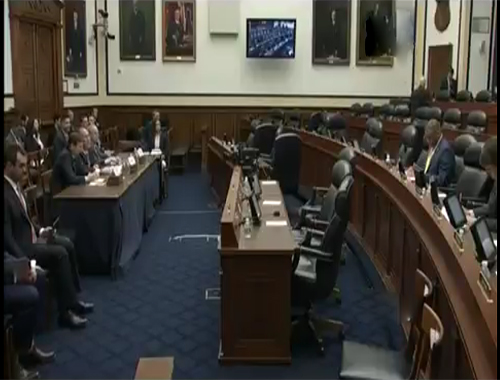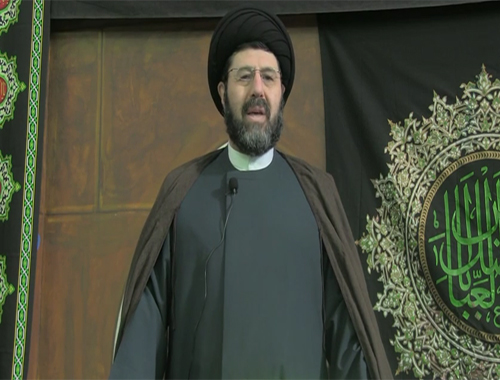Brief Answer
- Details
- Hits: 4811
Brief Answer
It must be noted that although the names of the pure Imams (ع) are not specified in the Qur`an, the Prophet (ص) did assert their names, especially the name of Imam ‘Ali b. Abi Talib (ع). A very clear instance of such assertion occurs in hadith Ghadir, which is considered the official announcement of the caliphate of Imam ‘Ali b. Abi Talib (ع). Regarding the question of transmission, this hadith is mutawatir [i.e. it has been narrated through so many lines of transmission that it can be accepted without doubt.] and its content reveals clear evidence for the Imamate of Imam ‘Ali b. Abi Talib (ع).
Moreover, there are several verses in the Qur`an that pertain to the status of Imam ‘Ali b. Abi Talib (ع), the most important of which is verse 55 of Surat al-Ma`idah;
“Your guardian is only Allah, His Apostle, and the faithful who maintain the prayer and give the zakat while bowing down.”
In books of exegesis and history, both among the Shi’ite and Sunni sources, it has been pointed out that this verse was revealed after the event in which Imam ‘Ali b. Abi Talib (ع) gave his ring to a poor beggar as charity while he was bowing down in prayer, and so this verse refers to no other than Imam ‘Ali b. Abi Talib (ع). Thus, although Imam ‘Ali b. Abi Talib (ع) has not been mentioned in the Qur`an by name, there are evident references to him.
But as to why the Imams (ع) have not been mentioned by name, at least two answers could be propounded.
Firstly, the normal pattern of the Qur`an is to deal with issues in a general tone, providing the general principles and rules, without getting into the explanation of the minute details. This is the method the Qur`an takes up in many instances and it is for this reason that when Imam Ja’far b. Muhammad as-Sadiq (ع) was asked about this question, he replied that, “It is the same case with the daily prayer, the zakat, and hajj: Allah has mentioned only their general rules in the Qur`an but has not elucidated the details. It was the Prophet (ص) who expressed the precise method of carrying out such duties and their related details. In the same vein, regarding the question of succession, the Prophet (ص) himself specified the names of ‘Ali and his household (ع) as his successors and so there was no need for their names to have been expressed in the Qur`an itself.
Secondly, in such an issue, where there was a good chance of opposition, prudence necessitated that the Qur`an mention the issue indirectly and through allusions for there was the possibility that opposition to the issue of Imamate might lead to opposition to the Qur`an and the main core of Islam, which was certainly not in the interest of the Muslims. That is, if there were a verse specifying the succession of ‘Ali (ع), the opponents would have distorted it out of their opposition to him, and this would have violated the value of Islam and the Qur`an as the final religion and the eternal and divine book. For, it should be borne in mind that one of the ways by which the Qur`an could be preserved—for Allah (awj) has asserted, “Indeed We have sent down the Reminder [i.e. the Qur`an] and indeed We will preserve it.”[295]—is to remove the natural motives for opposition and distortion.
Hence, the Qur`an, firstly, refrains from expressing the names of the Imams (ع); and secondly, places the verses that are related to the question of Imam ‘Ali b. Abi Talib (ع) successorship, the Verse of Tabligh (which regards the official announcement of Imam ‘Ali b. Abi Talib’s (ع) successorship), and the Verse of Tathir (which regards the infallibility of the Prophet’s household) between other apparently unrelated verses so as to diminish, as much as possible, the motives for distortion and in so doing secure the Qur`an against all possible attacks.











